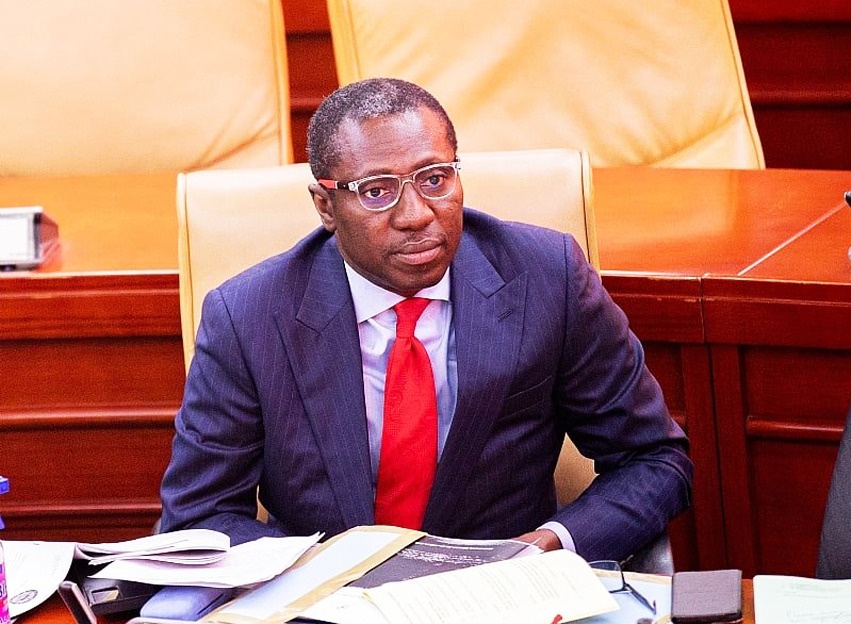
Africa’s most promising and immediate response is already underway: the AiAfrica Project, a groundbreaking initiative sponsored by the African Diaspora Central Bank (ADCB) and the Vanuatu Trade Commission to Ghana, and led by Knowledge Web Center, a pan-African AI education consultancy. This homegrown initiative has already trained over 250,000 Africans across Ghana, Nigeria, Liberia, Vanuatu, and Eswatini, providing practical, sector-specific AI skills in education, agriculture, finance, and health. It blends online and in-person delivery to ensure accessibility, even in low-connectivity regions.
Even more ambitiously, the project has concluded plans to train 3 million Rwandans in partnership with national stakeholders, and is preparing to launch the training of 2 million people in Imo State, Nigeria, in collaboration with the University of Agriculture and Environmental Sciences, Umuagwo, Imo State. Kenya, Ethiopia, The Gambia, and Zambia are actively engaging to participate, preparing pathways to scale AI learning in schools, communities, and government systems.
The AiAfrica Project’s target is bold: to train 11 million Africans by 2028 — not just students, but also teachers, public servants, and policy makers. What sets this initiative apart is that it is African-led, African-funded, and tailored to African realities. More importantly, it offers African governments an immediate opportunity to integrate AI literacy into school curricula, train teachers at scale, and build the policymaking capacity needed to govern AI responsibly and inclusively.
Rather than inventing separate systems or reinventing the wheel, African countries can leverage the AiAfrica Project’s existing training infrastructure, content, and strategic partnerships to move quickly. For any government looking to catch up with — or leapfrog — global education trends, AiAfrica is a ready-made solution rooted in the continent’s own ambitions and expertise. The global AI education race is not a distant event — it is happening now. The tools, platforms, and momentum exist. The only question is whether African nations will seize them in time.
- Africa’s Current State – Falling Behind in AI Education
Despite the global acceleration in AI education, most African countries remain significantly behind. While a few pilot programs and extracurricular initiatives have emerged, the formal integration of AI literacy into school curricula across the continent is still in its infancy. This delay risks turning Africa’s greatest asset — its youthful population — into a missed opportunity.
According to UNESCO’s global review on AI in education, as of 2022, only a handful of countries worldwide had formally introduced AI into their national K–12 curricula, and most African countries were absent from that list. Ghana, Nigeria, Kenya, and South Africa have begun exploring AI education through ad hoc pilots, coding clubs, and STEM labs, but widespread implementation is still missing. In most cases, AI education remains an elective topic, confined to urban schools or private institutions with access to global partnerships.
This limited reach is compounded by broader systemic challenges. Many teachers across the continent have little or no exposure to AI concepts. Without deliberate investment in training and curriculum development, most educators feel ill-equipped to introduce even basic AI literacy to students. There is also a critical shortage of teaching materials, digital content in local languages, and certified professional development programs that align with Africa’s diverse educational needs.
Infrastructure gaps pose another major barrier. Roughly 25% of African primary schools — and even more in rural areas — still lack access to electricity (UNESCO, 2022). Many others lack computers, reliable internet, or trained ICT staff. These constraints make digital education difficult, let alone AI-focused teaching, which requires at least a baseline level of connectivity and computational infrastructure.
Compounding the issue is a lack of policy coherence. In most countries, AI is not yet recognised as a core component of national education strategies. While some ministries of education acknowledge the importance of digital skills, few have developed concrete implementation plans or budgetary allocations to embed AI literacy systemically. Where national AI strategies exist, they often focus on high-level innovation goals, overlooking foundational education reforms.
This disconnection threatens to widen the digital divide even further. Without coordinated action, AI education in Africa risks becoming an elite, urban phenomenon — accessible only to students in well-funded schools or those who can afford private training. Millions of rural and underserved youths could be left behind, unable to participate in the opportunities of the Fourth Industrial Revolution.
And yet, the continent is not without tools or momentum. As noted earlier, the AiAfrica Project, led by Knowledge Web Center and sponsored by the African Diaspora Central Bank, offers a tangible and scalable pathway for African countries to bridge this gap. With over 250,000 people already trained in Ghana, Nigeria, Liberia, Eswatini, and Vanuatu — and major programs underway in Rwanda and Imo State — African governments have an opportunity to integrate AI education rapidly and affordably.
What’s urgently needed now is political will. Ministries of education must move beyond short-term digital literacy goals and adopt long-term frameworks that prioritise AI literacy from the primary level upward. They must invest in teacher training, build digital infrastructure in underserved communities, and engage with proven partners like AiAfrica to deliver impact at scale. If Africa fails to close this AI education gap now, the cost will be irreversible. The world’s technologies are evolving — and so must Africa’s schools.
Source: Dr David King Boison and Dr Ahmed Antwi-Boampong
The post Coding Is No Longer Enough: Why Africa Needs AI Literacy In Every School (1) appeared first on DailyGuide Network.
Read Full Story

















Facebook
Twitter
Pinterest
Instagram
Google+
YouTube
LinkedIn
RSS